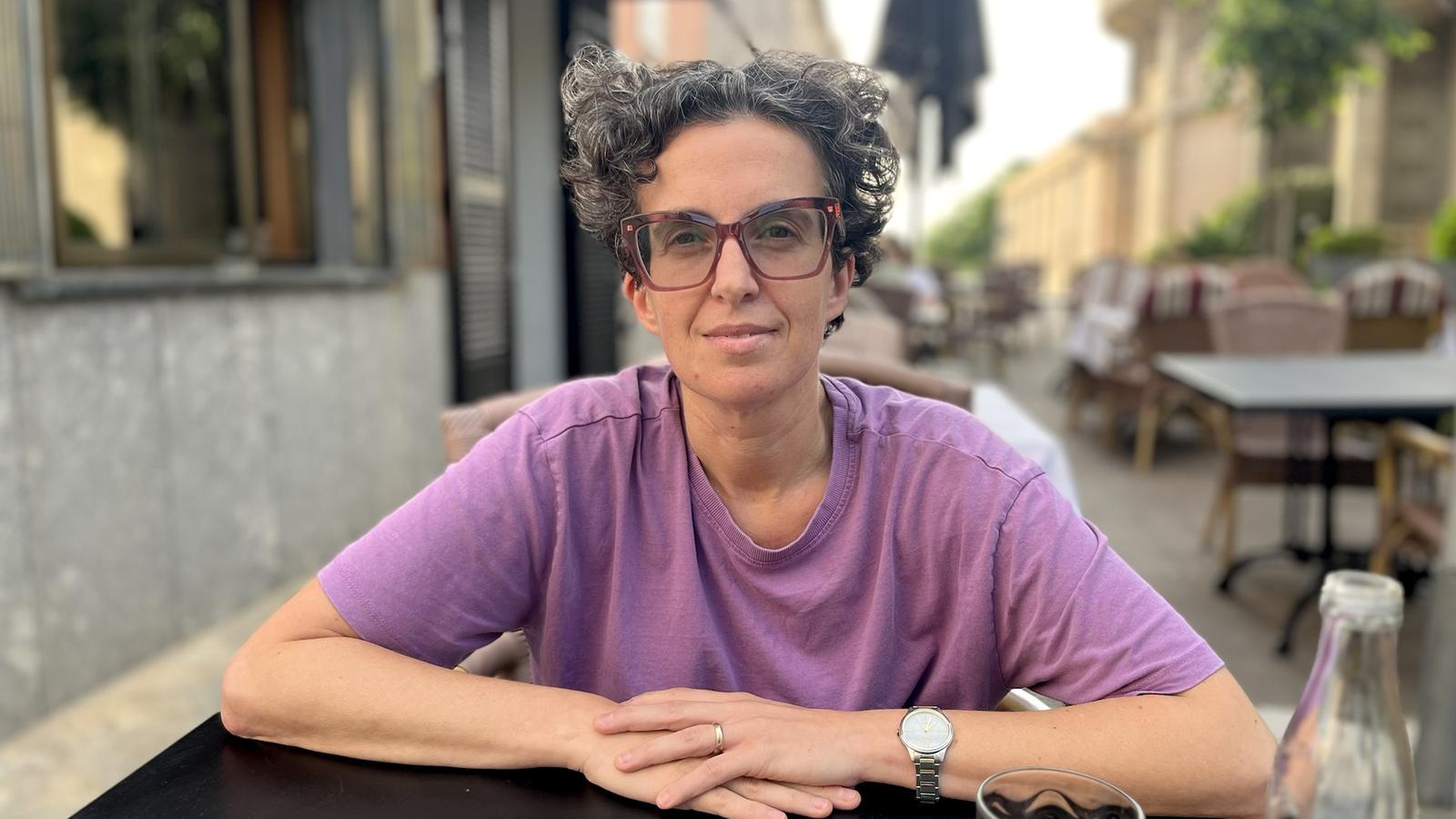"Geopolitics is key to making a price prediction."
Interview with Carme Frau, economist and professor at the UIB

ManacorCarme Frau (Manacor, 1977) has been a Macianera for five years. "I'm sure I won't leave." After many years between Madrid and London, she has received the Extraordinary Doctorate Award from the Faculty of Economics at the Complutense University of Madrid for a study that paves the way for predicting the price and valuing options, financial products that depend on another asset—in this case, an energy commodity such as gas or oil. She is currently a professor at the UIB and is finalizing a book on energy markets and models.
How did this extraordinary award come about?
— I actually finished my thesis at the Complutense University of Madrid in 2022, with an excellent grade.cum laudo, while working as an associate professor at the same university. The problem is that after that, you can't apply for the extraordinary award for up to two years. The doctorate is composed of three chapters in article format, which always take a bit of time to get published.
The idea of pursuing a doctorate didn't come to me until 2015. Initially, I didn't think about it: I just wanted to publish a publication and learn how the process worked, what it entailed. Until I found the topic that interested me, collaborating with the right people, who sparked my interest in pursuing it.
How to define the study?
— I cover the valuation of energy derivatives. When Russia invaded Ukraine, the general public became more interested in how the price of oil, especially gas, affected domestic economies. The study seeks to price derivative products—financial products that depend on another product—such as energy futures. It takes into account nonlinear price transformations and the mathematical models behind them. News affects how prices move: if Donald Trump makes a statement tomorrow, the weather, or how these raw materials can be extracted—the market reflects that.
We want to predict the price by accurately valuing derivative assets. First, you estimate the price of the underlying asset at a future point in time, then you subject it to a nonlinear transformation (the option). Oil and gas contracts will have monthly maturities over a horizon of up to five or six years. From there, we make estimates using mathematical calculations.
Complex expectations.
— They're complex but entertaining exercises, like a puzzle. In reality, we're frustrated mathematicians. It's because in high school they didn't advise me to study math: they said you couldn't make a good living from it...
And so can patterns be defined?
— Patterns depend on your expectations. It's about considering geopolitical events in an abstract way and balancing everything.
Do you use a lot of statistics?
— There's a lot of work behind it, and it's not just about crunching numbers. Modeling is about understanding a tree with many branches. It's about finding better models than the ones we already know. They don't need to be more complex, but they do need to capture more properties of the assets' real-life behavior. The tools are becoming increasingly sophisticated. Ultimately, it's a combination of analytical expressions with numerical methods.
What is valued to obtain this extraordinary award?
— The substance and quality of the articles are valued. Also considered are the thesis committee's grade, the journals in which you have published, whether other authors cite your research, and your professional background—such as joining the UIB after defending your thesis.
Speaking of which, what are the prices of these sensitive products like?
— Since the invasion of Ukraine, they've had much greater volatility. It's all crazy. If the patterns were clear before, now they're all price jumps, and we need to try to address this. The basic models are very weak. If you find a quick and robust analytical formula, everyone will want to use it. If the solution is very complex, you have to resort to numerical techniques that require very slow calculations, and that's not worth it. It's like a toy: the more elaborate it is, the more attention-grabbing it is. The final result is of interest to those who work in the markets.
How important is geopolitics?
— This is key. To fully understand how historical data evolve, events such as sanctions on Russian oil imports or the closure of a gas pipeline, for example, must be taken into account.
After the dependence on gas and oil, what will we see?
— The next step is—and will be—a combination of fossil fuels and renewables. Complete independence from oil is a utopia. Oil will be left to cover other needs, such as plastics. Gas independence, on the other hand, will be somewhat simpler.
What are you working on now?
— Two of the three articles in my thesis have already been published in very good international journals. I'm currently revising the third, and after that, I'll be publishing a book—due mid-summer—on energy markets and models. It's basically the book I wish I had found when I started my thesis: what energy assets or commodities exist, what markets they're listed on, what geopolitical factors affect them, what relevant studies have been published, what their prices and characteristics depend on. It's aimed at graduate and doctoral students who want to work in this field.
